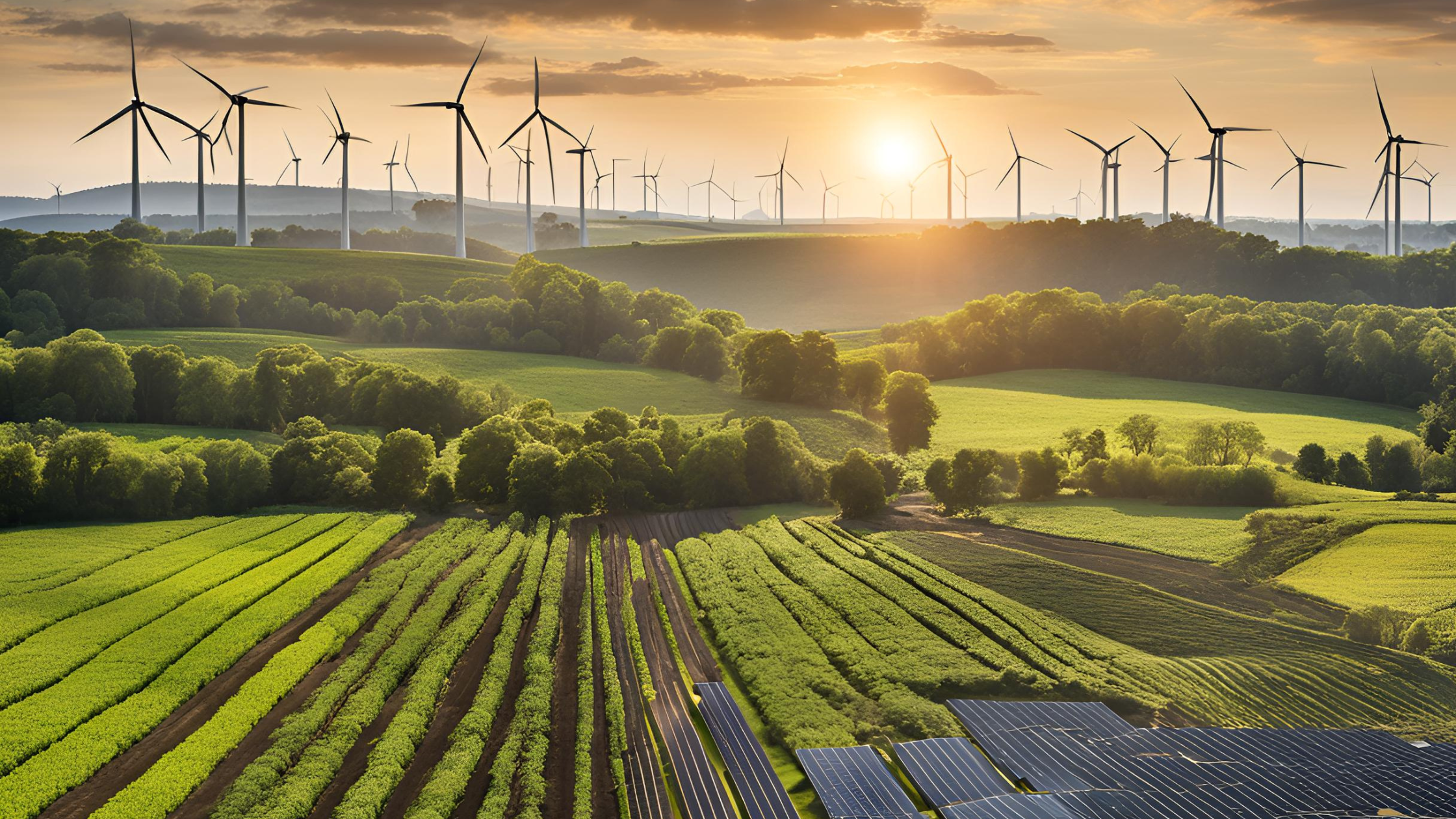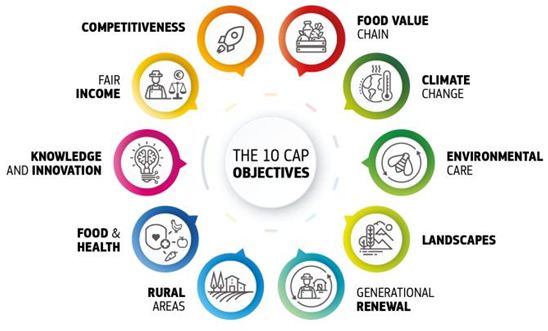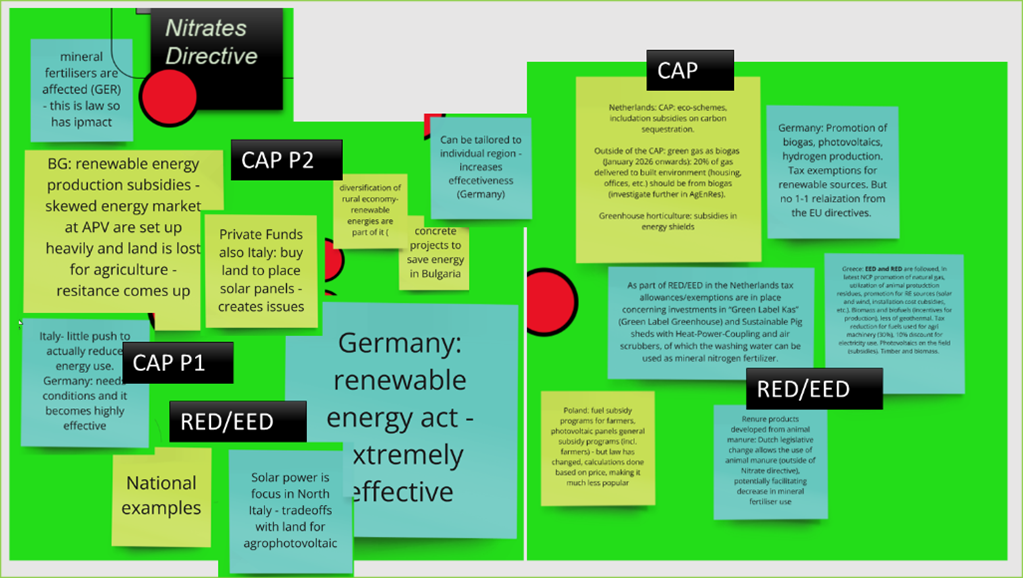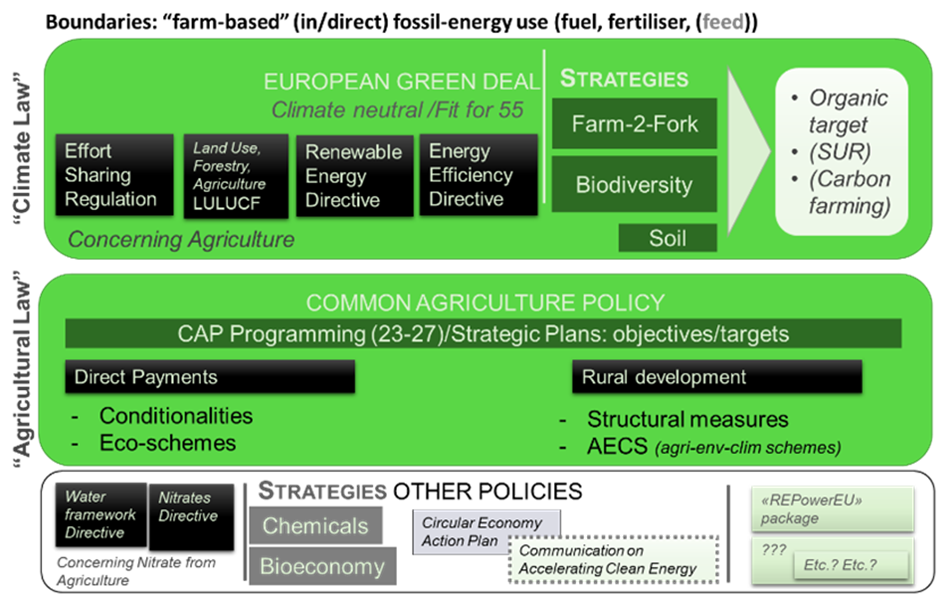Tackling Energy Independence in Agriculture – Insights from AgEnRes Deliverable D1.1 and its Stakeholder Workshop
In the face of rising energy prices and
climate challenges, agriculture stands at the crossroads of transformation. AgEnRes aims to navigate this intersection
by exploring strategies for energy independence and resilience in farming. Deliverable D1.1, the project’s first major
output, explores the policies shaping this transition. From the EU Green Deal to national implementation, it provides a
roadmap to understanding how policy frameworks can help—or hinder—the journey toward sustainable
agriculture.
Here’s what we found during our
work:

Deliverable D1.1 paints a detailed picture of policies influencing energy use on farms. With a focus on direct fossil energy consumption (e.g., transport, heating) and significant indirect flows (e.g., fertilizers), the report maps key regulations at the EU, national, and regional levels.
Key EU policies in focus:
-
The EU Green Deal and its initiatives, such as Fit for 55, Farm-to-Fork, and Biodiversity strategies.
-
Renewable Energy Directive (RED) and Energy Efficiency Directive (EED), which set ambitious targets for renewable energy adoption and reduced energy use.
-
The Common Agricultural Policy (CAP), with its eco-schemes and rural development measures, which offers voluntary incentives for energy-efficient and sustainable farming practices.
While these frameworks establish ambitious goals—like 55% fewer GHG emissions by 2030 and a 32.5% reduction in energy use—their implementation often leaves room for improvement.

Fig 1. 10 key objectives CAP 2023-2027
The analysis revealed both potential and pitfalls in the current policy approach:
-
Inconsistent National Implementation: Policies like CAP rely on member states for execution, resulting in significant variability. For example, some countries emphasize renewable energy investments, while others focus on fertiliser reductions.
-
Contradictions and Trade-offs: Policies sometimes conflict with each other. Stakeholders pointed out how biodiversity laws can slow renewable energy projects or how subsidies for fossil fuels undermine efforts to reduce reliance on them.
-
Data Gaps: Metrics to measure energy resilience and farm-level impacts remain underdeveloped, complicating the evaluation of policy effectiveness.
-
Policy Blind Spots: No EU policy explicitly targets agricultural energy independence. Instead, progress is piecemeal, driven by climate, environmental, or rural development objectives.

Fig 2. AgEnRes Key Subject areas and policy levels for policy analysis
On June 17, 2024, we hosted an engaging workshop with experts from academia, policy-making, and civil society where participants explored two critical questions:
-
Which policies are most relevant for energy independence?
CAP measures, particularly eco-schemes and renewable energy incentives, emerged as central drivers. However, stakeholders highlighted the voluntary nature of many measures and the uneven uptake across countries.
-
What are the barriers to policy impact?
-
Economic hurdles: High land costs and investment barriers (e.g., for biogas systems) make renewable energy adoption challenging for smallholders.
-
Socio-political factors: The energy crisis and political volatility, especially in some Eastern European countries, exacerbate farmers’ reluctance to adopt new practices.

Fig 3. AgEnRes Major Policy areas with narrative of discussions in stakeholder workshop
Deliverable D1.1 and the workshop discussions highlight the need for bold, integrated action to unlock agriculture’s potential for energy independence. Here’s what policymakers should prioritise:
-
Strengthen Policy Coherence: Align agricultural, energy, and environmental policies to ensure complementary goals.
-
Address Fossil Fuel Subsidies: Phasing out subsidies can help shift focus to renewable alternatives.
-
Enhance Support for Farmers: Tailored financial incentives and simplified access to eco-schemes can encourage broader adoption of energy-efficient practices.
-
Focus on Data: Develop robust indicators to track progress toward energy resilience.

Fig 4. AgEnRes - Preliminary EU-Policy Map
Agriculture’s transition to energy independence is a complex yet vital challenge. The insights from Deliverable D1.1 offer a roadmap to navigate this transition, emphasising the importance of robust policies, stakeholder engagement, and farmer-centered solutions. Deliverable D1.1 will soon be available on our Resources section.
As AgEnRes progresses, we aim to build on these findings, fostering collaboration and innovation to secure a sustainable, resilient future for Europe’s agricultural sector.
Stay tuned for more updates as we continue this journey!
